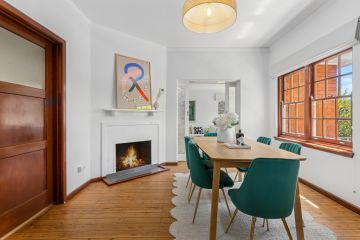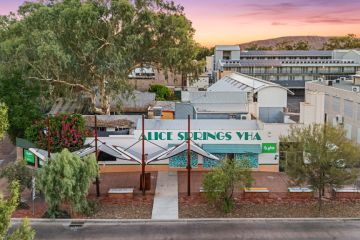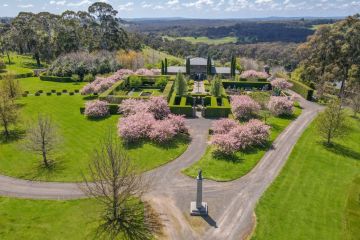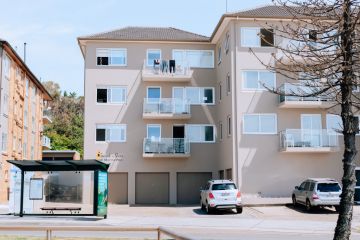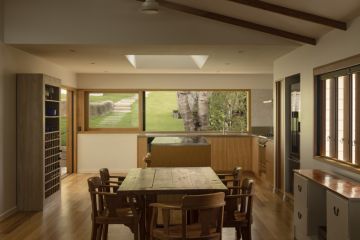What first home buyers think of raiding their super to buy a home

First home buyers are divided over a new policy that would enable them to use their superannuation funds to purchase a home.
Prime Minister Scott Morrison announced on Sunday that first home buyers would be able to withdraw up to 40 per cent of their super funds, up to a maximum of $50,000, for a home deposit.

Industry figures welcomed the announcement, with Housing Industry Association managing director Graham Wolfe saying that access to finance for a deposit was the biggest obstacle for Australians trying to buy their first home.
However, Property Council chief executive Ken Morrison described the Super Home Buyer Scheme as another demand-side measure and urged the government to tackle housing supply to properly address growing affordability concerns.
The Financial Services Council, which represents retail super funds, warned the move would undermine retirement savings, while some economists and housing experts said it could further fuel buyer demand and put upward pressure on property prices.
But what do first home buyers and renters think of the proposal?
Aspiring Sydney home owner Yatha Jain said the policy was not helpful to her as it would drive up property prices and leave her poorer in retirement.
“Firstly, it doesn’t really address the issue of affordable housing because it will make prices increase, and secondly, the impact on my super, as a young person, as a woman, as a woman of colour, we traditionally have less super when we retire – it will perpetuate that cycle,” the 25-year-old said.
The graduate, who works in the medical device industry and rents in Newtown, said she would rather the federal government commit to increasing supply instead.
“It’s not making it more affordable. You don’t make things more affordable by increasing the prices and giving out a little bit of money … and even when I say ‘giving out money’, they’re not really giving out money – they’re giving us the option of borrowing from our future.
“I’d like to see more supply of affordable houses. I’m no economist, but if you increase supply, prices go down. It’s very telling of the government and where they stand and who they are helping out.”

First home buyer Kylie King, 43, would have liked to access her superannuation when she recently purchased a two-bedroom Ormond apartment for herself and her eight-year-old daughter after four years spent saving and living with her parents. She said she would have definitely considered the option with her mortgage broker, had it been available.
“That would have [reduced] some of the three to four years that it took me to save a deposit. I definitely could have bought in a little bit of a higher price bracket,” the gym manager said.
She would not have been wary of dipping into her superannuation, believing she had plenty of time to build it back up. However, she did question how accessible the scheme would be for those locked out of the housing market, noting they would still need to be able to service the loan.

Melbourne renter Sharon Westin, 45, welcomed the announcement and wished it was an option available to her.
Having previously purchased an investment property via a self-managed super fund with her former partner, she would have preferred to put her super toward a home for herself and her two children, who face a challenging rental market. She has moved home 39 times during her life.
“To have that ability to put down some roots somewhere would be amazing, but it’s still out of reach, unfortunately,” she said.
Westin, who runs Artfulness Retreats, has been watching her superannuation like a hawk since buying the property, with less than $10,000 now in her account.
“To have that ability to put down some roots somewhere would be amazing, but it’s still out of reach, unfortunately.”
Sharon Westin, renter
Still, she was supportive of giving first home buyers the option to access their super, but felt there should be an age limit, so older Australians weren’t leaving themselves with little saved.
However, she would like to see the fine print and more modelling of its impact on property prices. She did not think the policy was worth it if it was going to push prices up a significant amount.

Meanwhile, Sydney first home buyer Josh Kidd, 26, felt it was a ridiculous policy that could have a negative impact on retirement savings while also pushing up first home buyer demand and prices.
“My main concern is the possibility of destroying future wealth in order to create a Band-Aid fix in the short term,” Kidd said.
The inner-west home owner, who purchased a two-bedroom apartment last year, would not have taken up the option had it been available to him. However, he was in the fortunate position to use some inheritance money to top up the deposit he had spent years saving.
He felt more needed to be done to improve housing affordability but was wary of policies that could put upward pressure on demand and prices, including Labor’s Help to Buy schemes, which he was more in favour of.
“I don’t know if it actually makes it easier or not, it just seems based on a history of trying to fix this with hand out policies, that it hasn’t,” he said.

Sydney renter Joel Murray, 37, was also against the policy, saying it would only add to first home buyer demand and would do nothing to truly address the housing affordability crisis.
“The Morrison government has overstimulated the demand side, whilst not addressing the supply side, which has an inflationary effect on housing prices, which is counterintuitive to achieve more affordable housing and give an opportunity for first home buyers who don’t have intergenerational wealth … or are single or on lower incomes,” they said.
The community health worker felt it would do little to help those locked out of the housing market and would prefer governments invest more in public housing.
Murray did not want to access super to get into the housing market sooner. On top of impacting retirement savings, there was the risk of investing in a property that may fall into negative equity in future years.
“Whereas at least I know that my super is gaining interest, and it works better for me knowing that my super is accumulating. It seems like a big risk for maybe not a big return,” they said.
For Yass first home buyer Jana Horarik, 32, who hopes to buy a family home in the next six months, any additional assistance to help reach a 20 per cent deposit was welcome news.
“It does appeal. I know it’s not great long term but I feel like retirement is so far off and the housing market just keeps growing, so it’s better to take out now and try to make voluntary contributions [later],” Horarik said.
While the mother of two and nursing student did not have much in her superannuation, her partner did. The pair would likely consider using their super to top up their deposit, she said, but noted she would also consider it if she had little savings.
She added that she wouldn’t support the policy if it were to have a major impact on prices but did not think it would, given few first home buyers would have enough super saved to take out the maximum amount.
We recommend
We thought you might like
States
Capital Cities
Capital Cities - Rentals
Popular Areas
Allhomes
More



